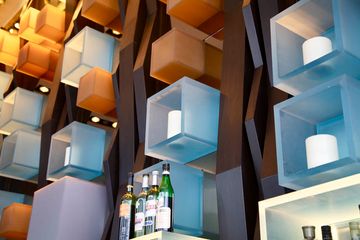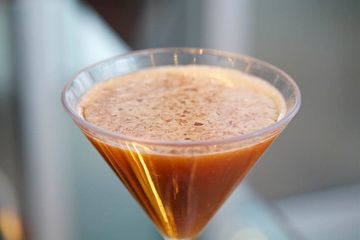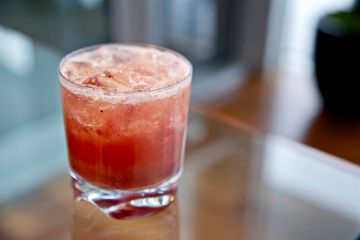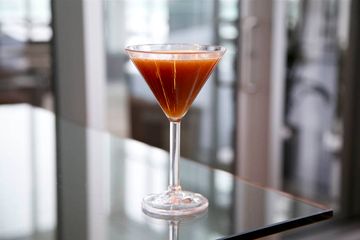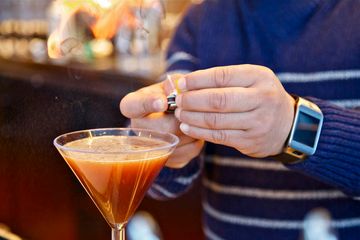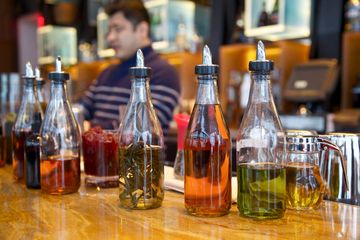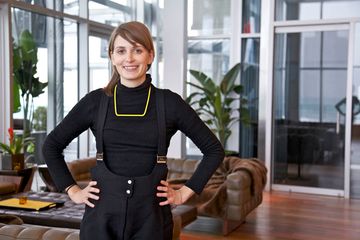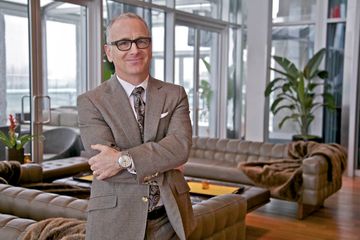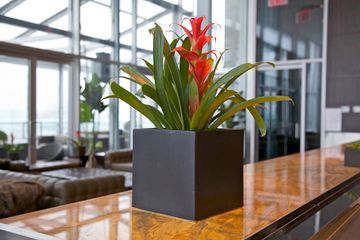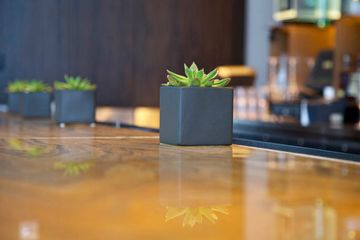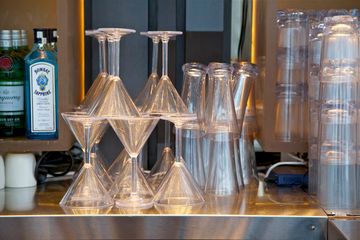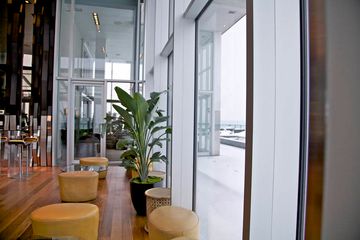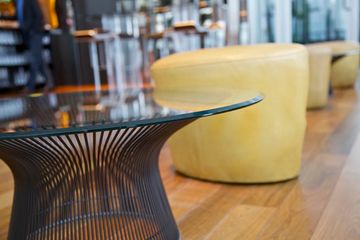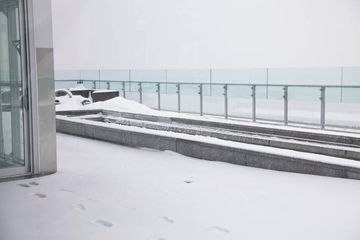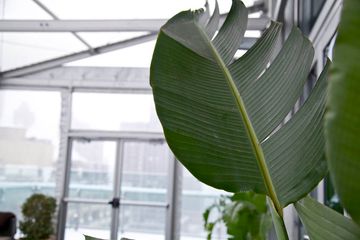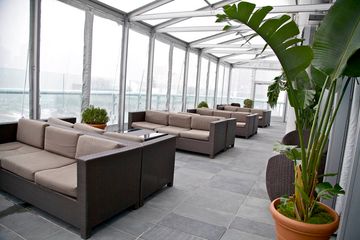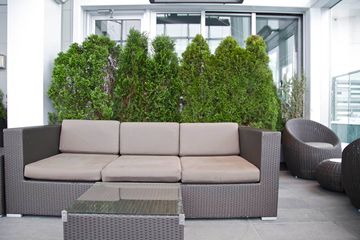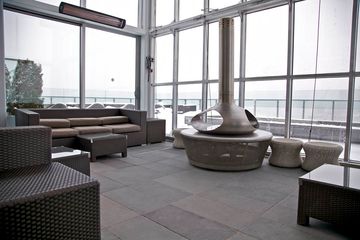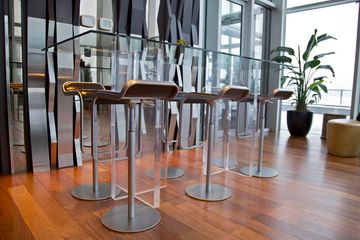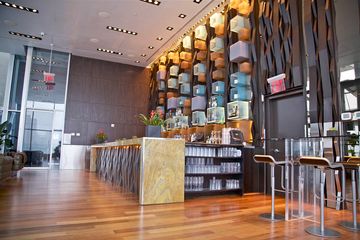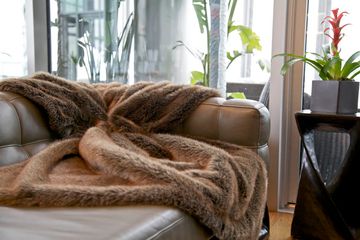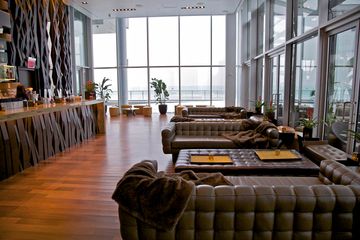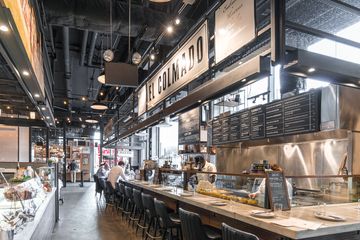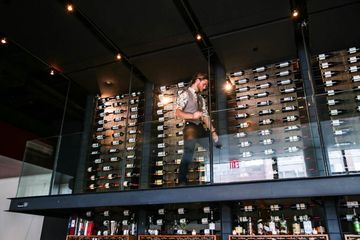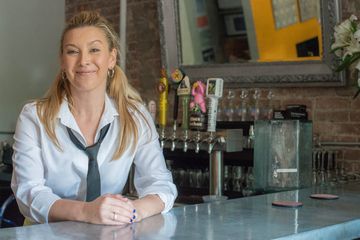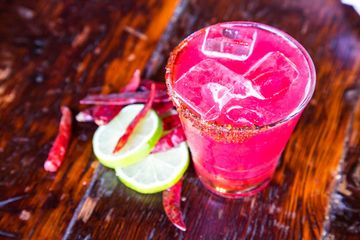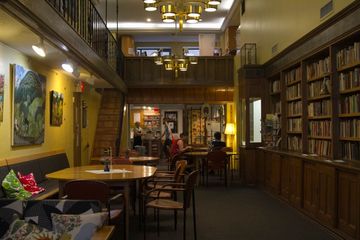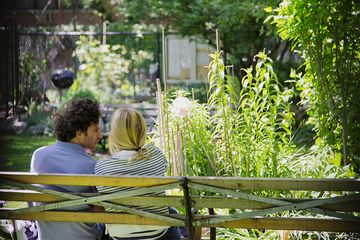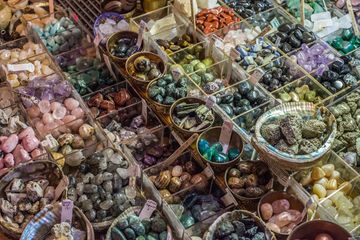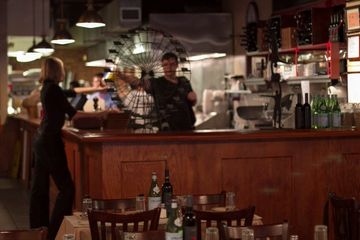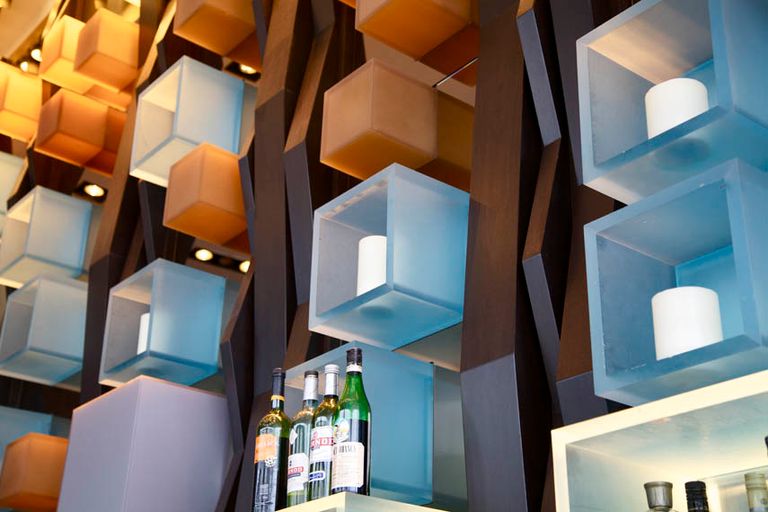
When John O’Mahoney, the director of sales and marketing for the Press Lounge and Print, ushered us up to the bar at the very top of the entirely green building that houses the hotel, Ink48, I was dazzled by how bright everything was. Even though there had been snow flurries on and off, the Press Lounge was bursting with light. The wide open space seemed like what one might experience on the west coast, rather than in New York. The Northern Californian vibe is no accident, as Adam Block, the owner, is bi-coastal. Though he spends much of his time in New York and grew up in Chicago, but has great respect for Californian aesthetic and customs.
The space on the rooftop was partitioned into several unique sections, each equally awe-inspiring. The main bar space featured a series of differently sized cubes on the back wall, glowing in hues of coral and teal. The couches were draped in warm fur blankets for wintertime, and Persian palms dotted the room. An outer patio had dark, wicker furnishings where, despite this wintry day, the views remained the center of attention. One of the most astonishing rooms was “the Sun Room,” often reserved for private events, which has an enormous garage door that opens on warm days to give the illusion of being perched on the edge of the sky. Finally, the outdoor portion of the patio was the only area closed for the winter. Adam, however, was kind enough to show me the video of how the pre-existing rooftop pool was turned into a garden and seating area using repurposed, warped wood.
When I spoke to Adam, he told me that he received a lot of his inspiration from Alice Waters, who was a client through his consulting business. The notorious chef and restaurateur from Chez Panisse in Berkeley, developed farms in Northern California and aimed to find farmers off the grid. She was truly “farm to table” before the expression became trite. Adam came away with a significant education from Alice, and when he decided to open the twin dining establishments for Ink48, his first thought was, “How can we be sustainable?” He was not only referring to the food, but also to the business model: He wanted to create a space that would be a destination, but also a place to which people would want to return. He wished to develop the staff in such a way that they would remain as part of the family. People called him crazy, he told us, when he added 125 jobs during a financial crisis, but he believes it has paid off. There has been very little turn-over in the staff, which is unusual in an industry which is known for being a revolving door. Adam proudly told me that he has had the same cocktail servers for the past three years. He attributes this to “a balance in healthiness.”
One of the positions on his staff that had existed from the very beginning is the role of professional forager. Meghan Boledovich holds that title, and she is possibly the only professional forager in New York. She was educated in the new NYU Food Studies program, and Adam said he liked her for the role, not only because she was extremely qualified for all aspects of the job, but also because she was “very bohemian in her purest mindset.” Meghan explained, “People think I’m just out in the woods hunting for mushrooms…but I only do that sometimes.” She has a hand in the special outreach programs that the restaurants run in order to give back to the community - most recently she taught school children how to maintain a better food mindset. She networks with other foragers and uses a European sensibility gained from her time spent in Provence to find the best seasonal ingredients at the nearest, most sustainable locations. Locality comes second to sustainability: she would rather choose a farm that is farther away with better practices than a nearby farm with questionable methods. As we stared at the snow, she expressed her jealousy for Californians: “They have about eighty items in season right now. We mostly have root vegetables. It’s hard to be a forager with this pause.”
